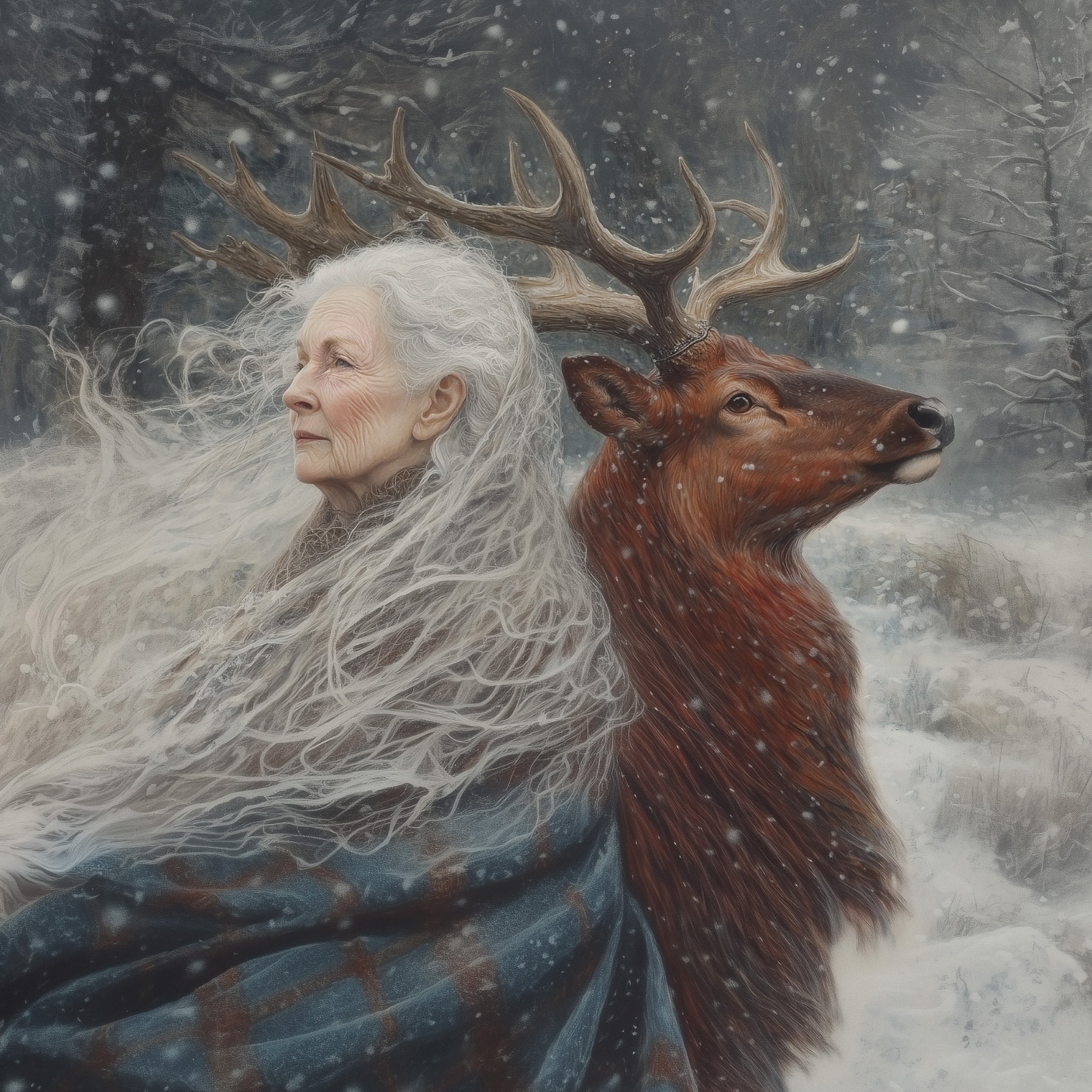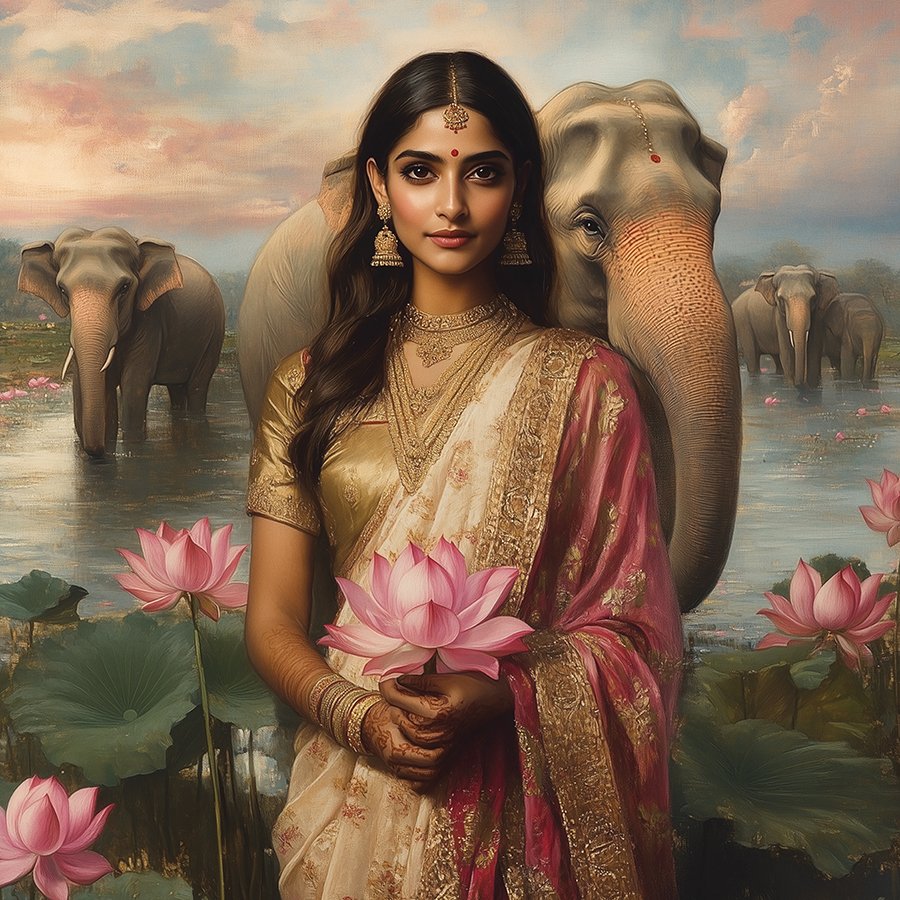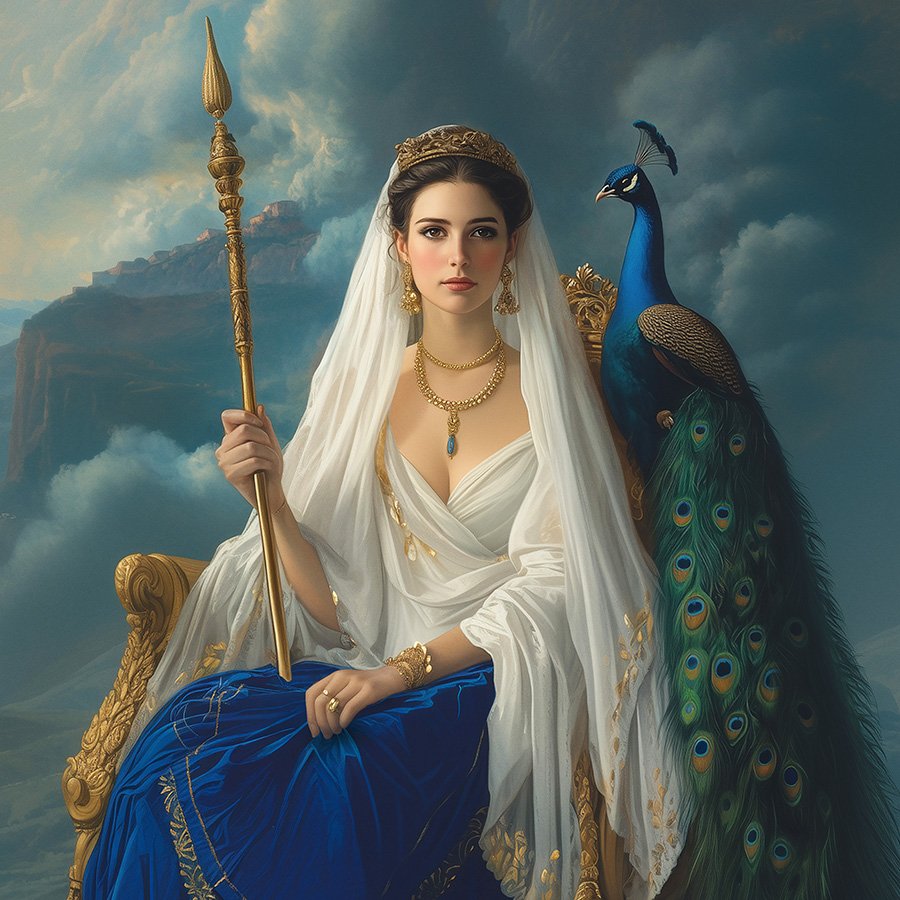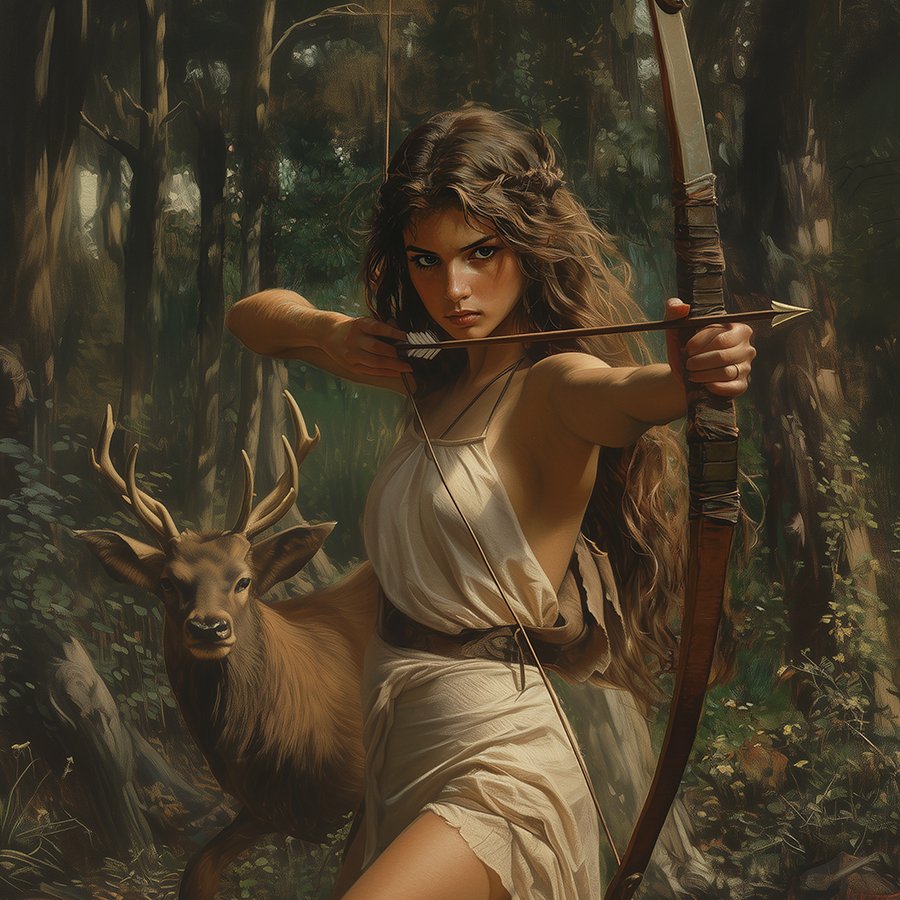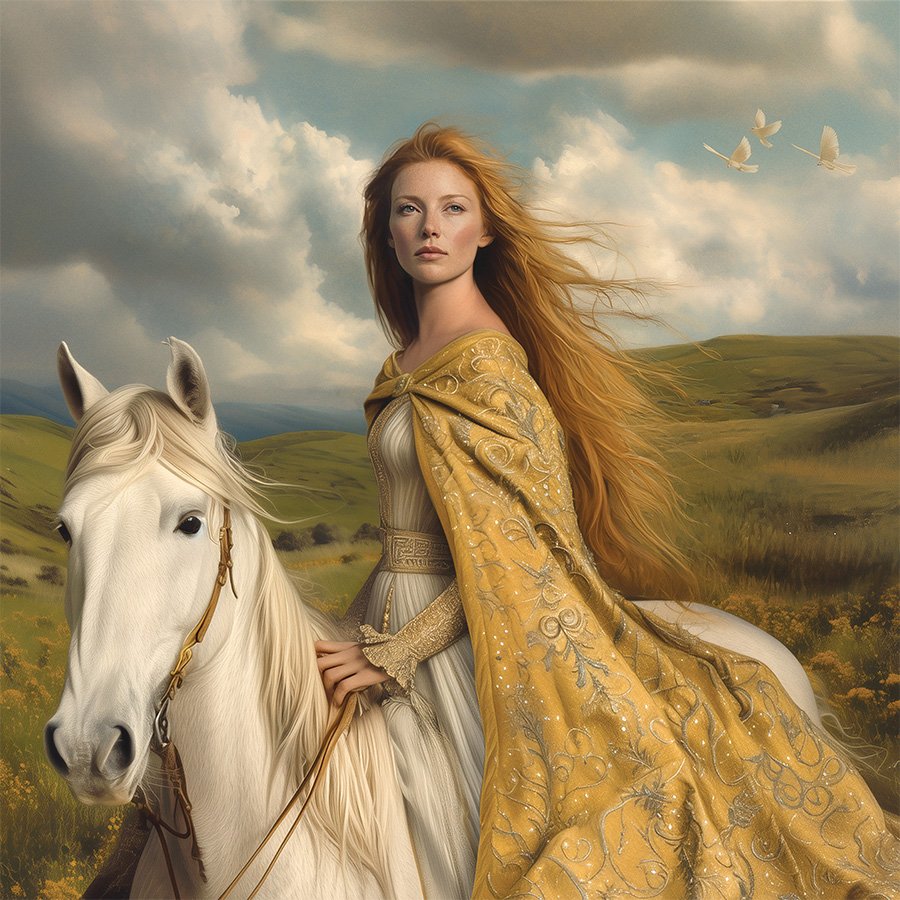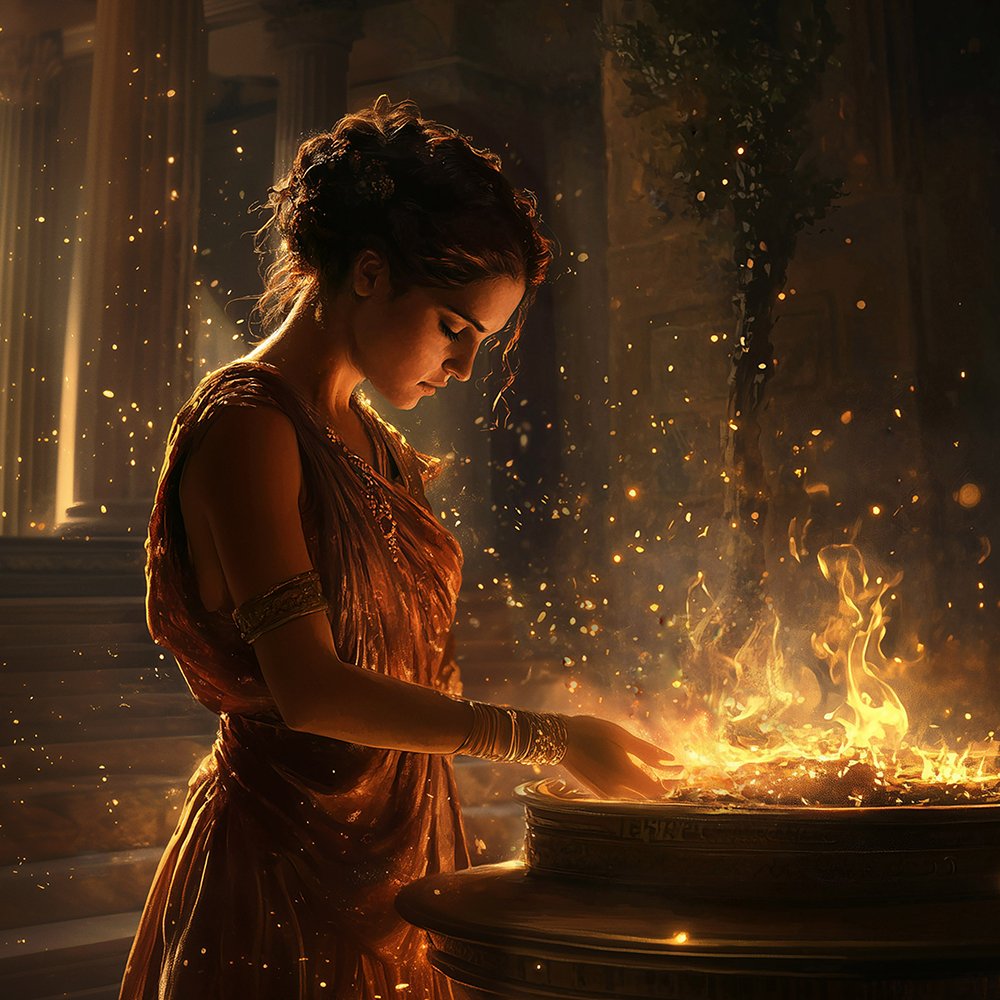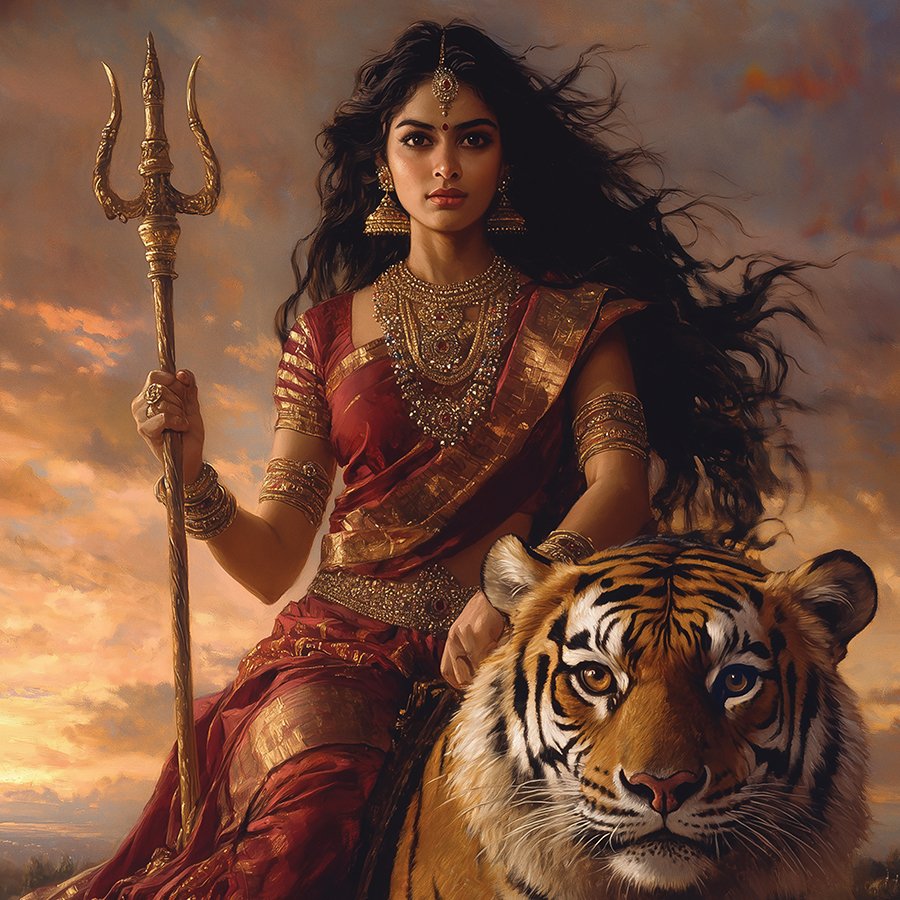Ishtar/Inanna
Originating from ancient Mesopotamia, the goddess Inanna—also known as Ishtar—embodies a rich tapestry of love, fertility, war, and the dynamic interplay between creation and destruction. Revered as the Queen of Heaven and Earth, she represents both strength and vulnerability, and her legendary descent into the Underworld symbolizes profound themes of transformation and renewal. With the lion as her sacred symbol, Inanna embodies the duality of the nurturing mother and fierce warrior, reflecting her protective and powerful nature. Her influence extends through various cultures, inspiring deities like Astarte and Aphrodite, and underscores her enduring legacy in spiritual narratives.
Ostara
Imbolc, celebrated around February 1-2, marks a pivotal point in the Wheel of the Year, symbolizing renewal, purification, and the returning light as winter wanes. Rooted in Celtic traditions, this festival honors the goddess Brigid, associated with fire, inspiration, and fertility. Imbolc celebrates the first stirrings of spring, encouraging spiritual renewal through rituals like candle lighting and crafting Brigid's Crosses. As we embrace the growing warmth and light, Imbolc invites us to cleanse and prepare for the new life that spring promises, reflecting the enduring cycle of nature.
The Cailleach
Brigid, a central figure in Celtic mythology, is revered as the goddess of fertility, healing, poetry, and smithcraft. Originating from ancient Ireland, she was celebrated as a bringer of spring and a symbol of renewal, her presence marked by the sacred flame tended in her temple at Kildare. Brigid's influence extended beyond her associations with fertility and healing to her role as a patron of the arts and crafts, inspiring both poets and metalworkers. Despite the rise of Christianity, Brigid's worship endures, with her festival Imbolc, celebrated on February 1st, reflecting themes of growth and new beginnings, and her legacy continues to inspire modern practitioners of Celtic spirituality.
Lakshmi
Durga, the fierce and powerful goddess of Hindu mythology, embodies the ultimate power of the divine feminine, riding into battle on a lion or tiger with unmatched grace and strength. Her story, rooted in the cosmic struggle between good and evil, serves as a timeless reminder of the indomitable force of righteousness and the inner strength that lies within us all. As a protector and spiritual mother, Durga's energy resonates far beyond myth, inspiring those who seek courage, transformation, and empowerment. Her legacy is a living narrative that continues to guide and uplift, reminding us that with unwavering faith, good will always triumph over evil.
Sedna
Selu, the revered goddess of corn in Native American mythology, is a central figure in the beliefs of several southeastern tribes, including the Cherokee and Creek. Created by the Great Spirit to provide sustenance, Selu is celebrated for her power to ensure a bountiful harvest and her nurturing nature. According to Cherokee mythology, Selu, the first woman and corn goddess, was killed by her sons who feared her magical abilities, but she instructed them to bury her body, transforming her essence into corn seeds to feed future generations. Today, Selu remains a symbol of wisdom, prosperity, and the cyclical nature of life, continuing to inspire spiritual practices and reverence in indigenous communities.
Hera
Artemis, the Greek goddess of the hunt, wilderness, childbirth, and virginity, emerges as a formidable and influential figure, with origins in pre-Greek cultures of Asia Minor. As the daughter of Zeus and Leto, she is depicted as a youthful, independent huntress with a bow and arrows, a protector of wild animals, and a guardian of young girls. Her association with the moon and her role in fertility and healing underline her spiritual significance, while her influence extends to modern Pagan and feminist movements, symbolizing female strength and autonomy. Artemis's legacy endures in art, literature, and spiritual practices, reflecting her timeless appeal and enduring relevance.
Sekhmet
My rekindled love for mythology was ignited by Sekhmet, the ancient Egyptian goddess of the scorching desert sun, plague, chaos, war, and healing. Created from the sun god Ra's eye, Sekhmet embodies both destructive and healing forces, guiding me through spiritual challenges with her fierce energy. As a lioness or woman with a lion's head, she symbolizes strength and authority, serving as a protector and guardian of cosmic order. Her dual nature reflects the balance between creation and destruction, making her a profound figure in both ancient rituals and modern interpretations.
Artemis
Artemis, the Greek goddess of the hunt, wilderness, childbirth, and virginity, emerges as a formidable and influential figure, with origins in pre-Greek cultures of Asia Minor. As the daughter of Zeus and Leto, she is depicted as a youthful, independent huntress with a bow and arrows, a protector of wild animals, and a guardian of young girls. Her association with the moon and her role in fertility and healing underline her spiritual significance, while her influence extends to modern Pagan and feminist movements, symbolizing female strength and autonomy. Artemis's legacy endures in art, literature, and spiritual practices, reflecting her timeless appeal and enduring relevance.
Rhiannon
Brigid, a central figure in Celtic mythology, is revered as the goddess of fertility, healing, poetry, and smithcraft. Originating from ancient Ireland, she was celebrated as a bringer of spring and a symbol of renewal, her presence marked by the sacred flame tended in her temple at Kildare. Brigid's influence extended beyond her associations with fertility and healing to her role as a patron of the arts and crafts, inspiring both poets and metalworkers. Despite the rise of Christianity, Brigid's worship endures, with her festival Imbolc, celebrated on February 1st, reflecting themes of growth and new beginnings, and her legacy continues to inspire modern practitioners of Celtic spirituality.
Hestia/Vesta
Athena, the revered goddess of wisdom, intelligence, and war, holds a significant place in ancient mythology. Known for her strategic mind and unwavering commitment to justice, she was often depicted in her warrior's armor, accompanied by an owl, symbolizing wisdom. Athena's unique birth story, emerging fully grown from Zeus's head, highlights her profound connection to intellect and rational thought. Her influence extended beyond warfare, as she was also a patron of the arts and crafts, embodying the ideals of wisdom, creativity, and civilization.
Isis
As the Mid-Atlantic bids farewell to summer’s heat and humidity, a cooler breeze signals the approach of autumn—a season rich with change and renewal. This transitional time, filled with childhood memories and the anticipation of the spooky season, feels empowering and magical. It brings to mind the cycles of life and death, growth and decay, echoing the story of Isis, the Egyptian goddess of motherhood, magic, and transformation. Isis reminds us of the importance of embracing change, finding strength in adversity, and connecting deeply with the rhythms of nature and life itself. As we honor her legacy, we are reminded of the beauty that can be found in both endings and new beginnings.
Durga
Durga, the fierce and powerful goddess of Hindu mythology, embodies the ultimate power of the divine feminine, riding into battle on a lion or tiger with unmatched grace and strength. Her story, rooted in the cosmic struggle between good and evil, serves as a timeless reminder of the indomitable force of righteousness and the inner strength that lies within us all. As a protector and spiritual mother, Durga's energy resonates far beyond myth, inspiring those who seek courage, transformation, and empowerment. Her legacy is a living narrative that continues to guide and uplift, reminding us that with unwavering faith, good will always triumph over evil.
Aphrodite
Aphrodite, the iconic goddess of love, beauty, and desire, transcends mythology to embody the essence of passion and devotion. Born from the sea foam in a dramatic tale of divine retribution, Aphrodite’s influence extends far beyond her origins, weaving through the fabric of ancient and modern cultures alike. From her passionate affairs with gods and mortals to her role as a muse for artists and lovers, Aphrodite’s legacy reminds us of the enduring power of love and beauty. Her myths and presence continue to inspire, offering timeless insights into the complexities of desire and the transformative nature of love.
Hemera
Hemera, the lesser-known Greek goddess of day, symbolizes the transition from darkness to light, heralding the dawn and awakening life each morning. As the daughter of Nyx and Erebus, Hemera plays a crucial role in Greek cosmogony, embodying light, hope, and renewal. Though her myths are few, her significance lies in what she represents—prosperity, vitality, and the enduring power of light over darkness. Hemera’s timeless presence continues to inspire, reminding us of the boundless potential each new day holds and the delicate balance between life and death.
Feng Po Po
As we embrace the airy energies of Gemini season, the Chinese goddess Feng Po Po, revered as Madame Wind, offers a powerful connection to the element of Air. This wise and elder goddess, often depicted riding a tiger and controlling the winds with her fan or flask, embodies the deep respect for age and wisdom found in Chinese culture. Her myths highlight the dual nature of the elements—both nurturing and destructive—while emphasizing the importance of environmental stewardship and balance. Feng Po Po’s legacy continues to inspire, reminding us of the enduring power of wisdom and our connection to the natural world.





